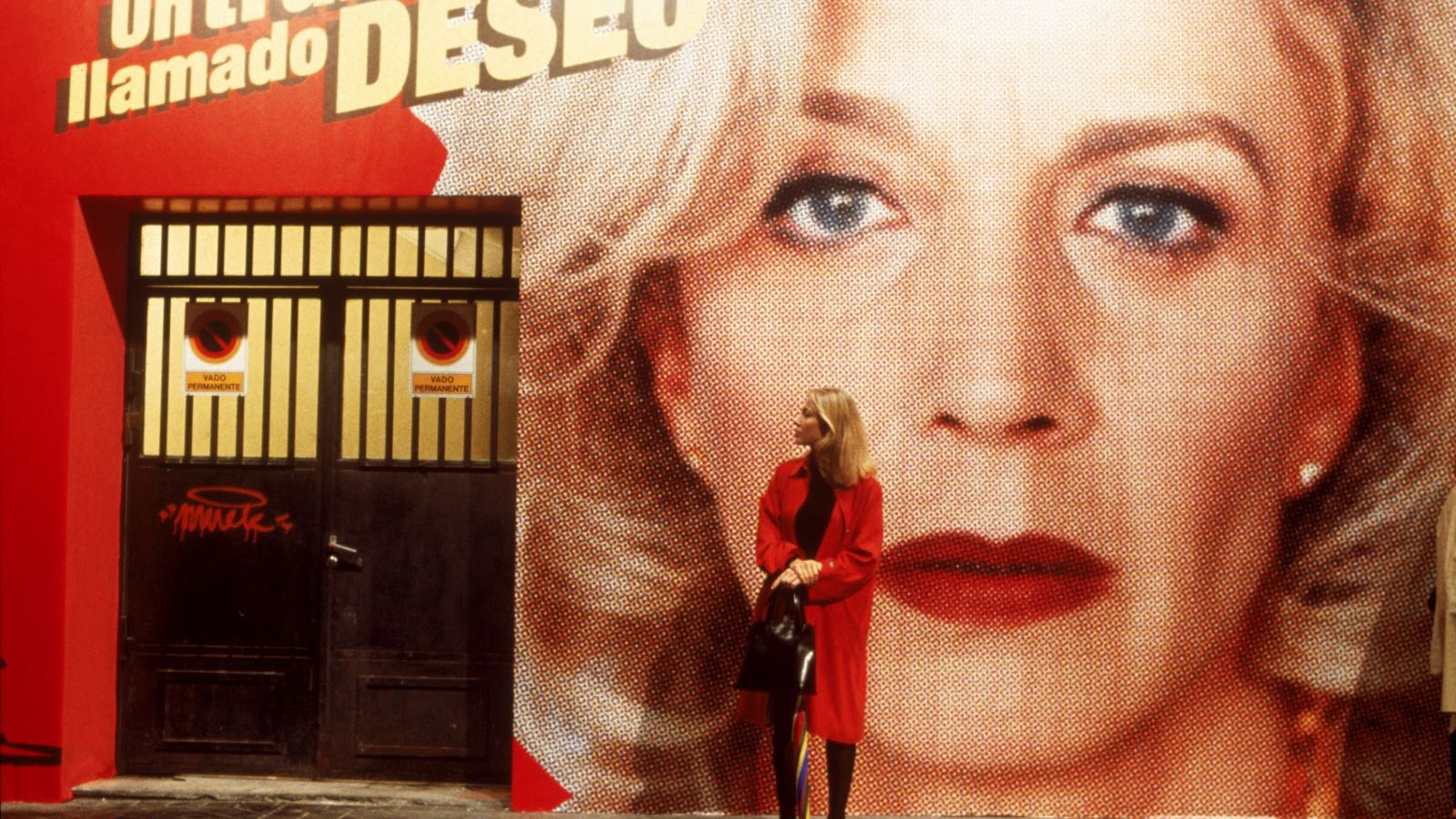How many mothers can you fit into 101 minutes of film? Well, that depends on how you define what a mother is. A biological womb? A nurturing guardian? A dependable caretaker? An emotional support cheerleader? A homebase to return to? A financial backer? A character role to embody, or an archetypal performance? All About My Mother (1999) showcases all of these mothers (and more) in a layered portrait dedicated to "all actresses who've played actresses, to all women who act, to men who act and become women, to all who wish to be mothers." In his Oscar-winning film, Pedro Almodóvar's many leading ladies blur the definitions of motherhood into a single Matryoshka-like narrative, with roles nested within roles, and each woman becoming a slightly modified version of the others and of herself.
All About My Mother pays explicit homage to the film All About Eve (1950) and the play A Streetcar Named Desire (1947) by weaving them directly into the script, creating an overlapping picture of women echoing each other. Manuela (Cecilia Roth), a single mother in Madrid, works as a nurse who sometimes helps young doctors simulate the experience of asking grieving relatives to donate their loved ones' organs. When she takes her son, Esteban (Eloy Azarín), to see a performance of A Streetcar Named Desire for his seventeenth birthday, his earnest attempts to get an autograph by the show's star, Huma Rojo (Marisa Paredes), are ignored as she drives away from the theater. In a direct nod to the same scene from John Cassavetes's Opening Night (1977), Esteban is struck down by another car without ever getting the autograph he so desperately wanted. At the same hospital where she performs as a grieving mother, Manuela is now forced into the role for her own personal tragedy.
To distract her from her son's haunting memory, Manuela moves back to Barcelona to find the father Esteban never knew he had: a trans woman named Lola (Toni Cantó) who Manuela had left after finding out she was pregnant. But nobody in Barcelona knows where Lola is. After finding her old friend Agrado (Antonia San Juan), a feisty trans sex worker, and meeting Rosa (Penélope Cruz), an optimistic young nun who helps all the "hookers and transvestites" until she discovers she's HIV-positive and pregnant with Lola's child, Manuela finds herself in a complicated web that links her past, her present, and the ghosts of futures she could have had. Drawn to rewatching Streetcar performances at the theater, she becomes embedded in Huma's life and the play itself, the same scenes repeating nightly. They're the same roles Manuela and Lola had played 20 years earlier when they had first met in a theater troupe. Now though, Manuela is reliving the same lines with no evidence to hold onto about all that's happened in between: her marriage to Lola, Lola's new breasts, their secret son, his tragic death. And yet, everything around Manuela is a series of interconnected quotes in a tight feedback loop of references. Losing her son doesn't rob Manuela of motherhood. Unexpectedly, she both is cared for by, and takes care of, a whole chosen family of women trying to be, have, and deliver the same maternal role that they each need from each other, in their own ways.
All About My Mother screens tonight, May 15, at Roxy Cinema on 35mm.



